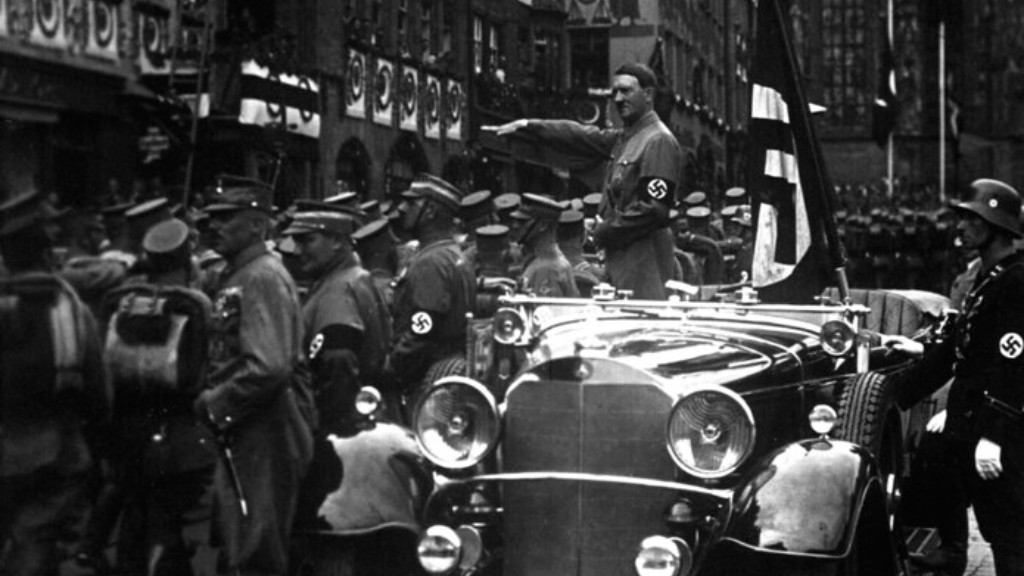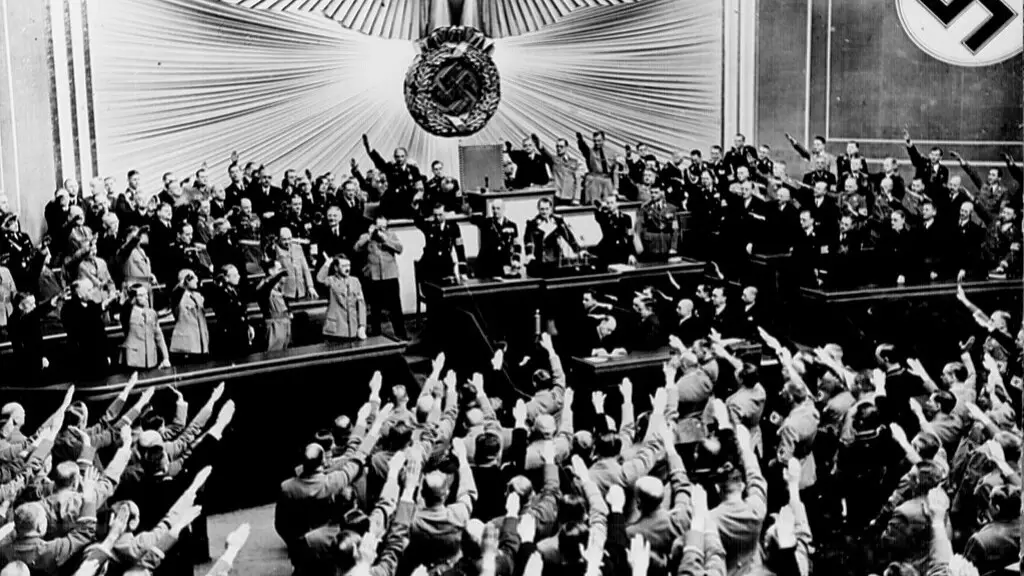Early Years of Muammar Gaddafi
Muammar Gaddafi was born in 1942 in a small tribal village near Sirte, Libya. From an early age, Gaddafi was a rebel and by 1969 he was the leader of a military coup that overthrow the Libyan monarchy. Despite his background, Gaddafi was educated and had a law degree. Gaddafi was a charismatic leader, and drew support an admiration from both his people and the international community.
Gaddafi first nationalized the oil industry in Libya and, through his policy of resource nationalism, Libya saw a great rise in its economic growth and income over the years. He invested heavily in social programs, such as public health care and housing. Gaddafi promoted reading and literacy, the rights of women, and the use of renewable energy resources. He was also an early supporter of the African Union.
In addition to his economic reforms, Gaddafi implemented a system of direct democracy, which allowed people to have greater control over their lives. Under his rule, persecution, torture, unjust arrest and imprisonment was not tolerated and in some cases, punishable by death.
Global Incident and War Crimes
Gaddafi was not known for diplomatic relations during the earlier years of his rule, Libya had several military adventures in neighboring African countries, such as Sudan and Chad, during the 80s and 90s. Gaddafi was condemned for his support of terrorist organizations and his attempts to purchase weapons and nuclear technology. Gaddafi was involved in the 1989 Lockerbie Bombing, which killed 270 and was one of the biggest attacks on a commercial airliner in history.
Gaddafi has also been implicated in the deaths of thousands of civilians in his own country. He has been accused of ordering the killing of dissidents and protesters who opposed his rule. Gaddafi used heavy force to suppress any uprising of opposition in Libya, leading to extended civil wars and international sanctions.
Gaddafi is also a recognized war criminal by the International Criminal Court, as well as a number of human rights organizations. He has been accused of sheltering international terrorists, profiting from weapons deals, and committing several atrocities such as torture and rape against his own citizens. In 2011, the U.N. adopted resolution 1973, that allowed for the use of military force to protect civilians from Gaddafi’s tyranny.
Libyan Civil War and overthrow of Gaddafi
In March 2011, a coalition of rebels led by the National Transitional Council seized control of Libya’s western cities, and Gaddafi responded with a fierce crackdown. The war quickly escalated and NATO forces were forced to intervene, launching a series of air strikes against Gaddafi’s forces. After an eight-month campaign of heavy fighting, Gaddafi was eventually killed by his captors in Sirte, where he had been attempting to flee the country.
Gaddafi’s death brought an end to the eight-month civil war, but the country is still experiencing conflict, thanks in part to the rise of Islamic State militants. Many Libyans have since expressed their relief that the tyrant’s rule is finally over.
Gaddafi’s Legacy
Gaddafi’s reign over Libya was a period of great turmoil. He is remembered as one of the most brutal dictators of modern history and his use of violence and intimidation left a deep scar on Libya. He is also remembered for his resource nationalism, economic reforms and power decentralization, which brought significant economic development in the country. However, his legacy will ultimately be judged by the great suffering and loss of life that he caused.
The international community remains divided on the legacy of Gaddafi, but whatever the opinion, one thing is certain – his death ended one of the darkest chapters in modern history.
Economic Implications
Gaddafi’s death has major economic implications for the country of Libya. Already in a state of financial turmoil from the civil war, the country is now dealing with the loss of billions of dollars in investments and assets. In addition to the loss of capital, the loss of Gaddafi’s resource nationalism has caused an increase in foreign competition and an overall decrease in economic activity.
The economy is on the brink of collapse due to the instability and lack of confidence, which has crippled the banking system and currency. The lack of foreign investments and business opportunities has created a hostile business environment with foreign investors refusing to invest in Libya.
In addition, the military conflict has resulted in the displacement of hundreds of thousands of people, many of which were employed in Libya’s oil industry, exacerbating the country’s unemployment problem. The country is also dealing with rampant inflation as the economy takes a turn for the worse.
International Relations
Under Gaddafi, Libya was an isolated country and had strained relations with most of the international community. In the years since his death, Libya has reinstated diplomatic ties with several countries, such as the United States and the United Kingdom, who had previously imposed sanctions. NATO has quietly withdrawn from Libya, but the country is still subject to military intervention from many western countries and organizations.
Gaddafi’s death has also led to a new era for Libya’s human rights, with organizations such as Amnesty International citing improvements in the country’s laws and regulations. Regardless of these improvements, Libya is still haunted by Gaddafi’s brutality and many Libyans still live in fear of a resurgence of the repressive regime.
Stability of the Country
The aftermath of Gaddafi’s death has left Libya in a state of political turmoil and social unrest. There is still no unified government, with two rival administrations vying for power. The country is plagued by militia warring and Islamic militants, and its energy sector is in disarray. International organizations have expressed concerns over human rights abuses, and the risk of terrorism remains high.
The lack of stability has caused humanitarian organizations to suspend their work in Libya, leaving many civilians without access to essential supplies and services. The country is in a state of humanitarian crisis with the majority of Libyans living in poverty. In addition, hundreds of thousands of Libyans have been forced to flee their homes and become refugees.
Conclusion
Muammar Gaddafi was remembered as one of the most divisive leaders in modern history. His oppressive rule, brutal crackdowns, and his support of terrorism have left a deep scar in the country of Libya. Despite his economic reforms and decentralization, he will ultimately be remembered for the great suffering and loss of life that his regime caused.


